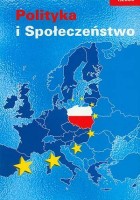Stan badań nad polską myślą polityczną w latach 1864–1939
State of the art of research on the Polish political thought in the years of 1864–1939
Author(s): Alicja WójcikSubject(s): Politics / Political Sciences, Political Theory, Political Sciences
Published by: Wydawnictwo Uniwersytetu Rzeszowskiego
Keywords: Polish political thought in the years of 1864–1939
Summary/Abstract: Research on political thought in the period 1864–1939 produced many important analyses, from comments and studies to works attempted as syntheses (the works of M. Śliwa and R. Wapiński). The scholars’ attention was directed at prominent categories of the political thought in its historical dimension. There appeared analyses which presented concep-tions of the political regime (A. Ajnenkiel, A. Friszke, J. Holzer, K. Kawalec, S. Kru-kowski, M. Pietrzak), issues concerning national minorities (A. Chojnowski, W. Mich), conceptions of foreign policy (J. Faryś, M. Mroczko, W. Wrzesiński), economic con-ceptions (K. Dziewulski, A. Wojtas, S. Żurawicki). Research is being done on the conceptions of the major political movements active in the period following the uprising and in the interwar period. Studies in the political thought of conservatives produced analyses concerning basic values of the movement, such as religion, tradition, property, freedom and conceptions of the political regime, socio-economic, national and foreign policy conceptions. Analysts of the Piłsudski camp focused mainly on the representation of the ideas concerning the state, concep-tions related to national minorities, foreign policy, economic programmes. Studies in the National Democracy were dedicated to the key value of the movement: the nation in a broad context of ideological and political conditions. They also included regime, territorial, foreign policy conceptions. Research on the Christian democratic current is in its initial phase. The peasant thought includes works related to many categories: from ideological conditions (agrarism) to specific categories of political thought (state, po-litical regime, self-government, cooperative movement, rights and civic liberties, secu-rity, national minorities, attitudes to other political orientations). Studies in the socialist thought were dedicated to the issues of the state and the nation, socialism, models of parliamentary regimes, national minorities, cooperatives, foreign policy, farmland prob-lems. Some assumptions of the Communist movement found their reflection in the analyses of the Polish nation and the Polish state, the peasant problem, the army, na-tional minorities, religion and the Catholic Church. There have been also produced biographical analyses of ideologues and activists of the particular political movements which presented their systems of values and political conceptions. In spite of the significant progress in the research, there are still many issues that require a more insightful and holistic approach. In particular, the need to conduct com-parative research both to demonstrate relationships between the particular groupings and inspirations and relations linking the Polish thought with the European thought is prominent.
Journal: Polityka i Społeczeństwo
- Issue Year: 2004
- Issue No: 01
- Page Range: 81-104
- Page Count: 24
- Language: Polish

